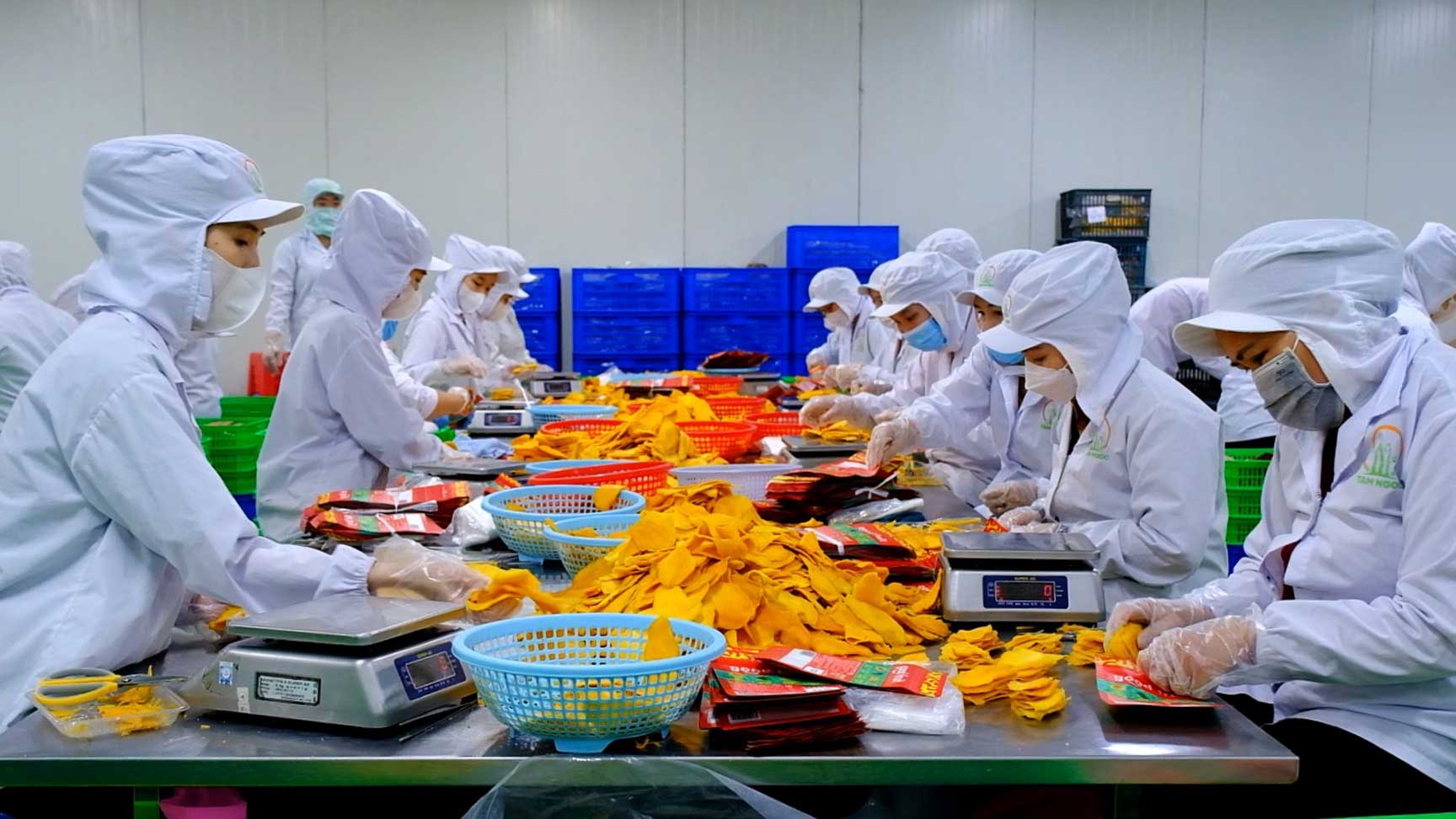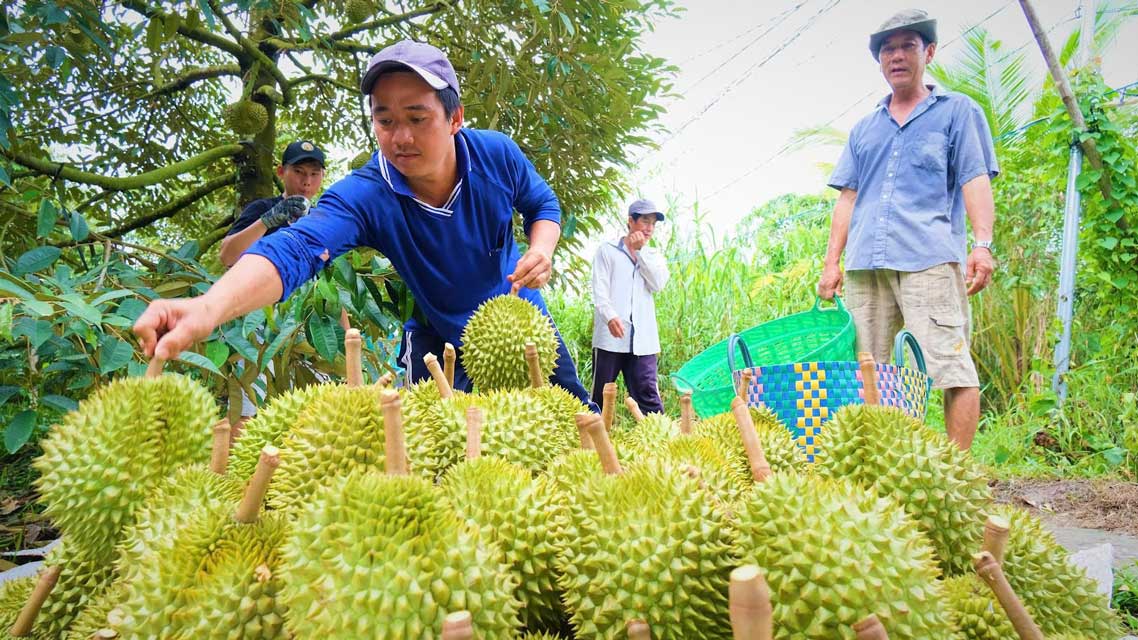Potential of processed agricultural products
Participating in the Forum on Building a Sustainable Agricultural Ecosystem towards the Net Zero Goal by 2050 recently held in Can Tho City with a presentation related to promoting the processing of agricultural products for export, Mr. To Thai Thanh - General Director of Tien Thinh Group Joint Stock Company - said that the added value of Vietnamese agricultural products is still low, mainly exported in raw form, without deep processing. This not only reduces the competitiveness in the international market but also limits the potential for rural economic development.
In recent years, Vietnam's processed agricultural products for export such as fruit juice, fresh fruit, dried fruit and canned food have been increasingly welcomed by consumers in the US and Europe.
Enterprises constantly improve processing technology, improve packaging designs and apply international certifications such as HACCP, GlobalGAP and FDA, which have helped Vietnamese processed agricultural products gain trust from international customers.

Speaking to Lao Dong, Dr. Dang Kim Son - former Director of the Institute of Policy and Strategy for Agricultural and Rural Development - stated that technical advances in processing and storing agricultural products play an important role in promoting production and export. Recently, technical advances in processing frozen fruits have created great opportunities for the consumption of valuable agricultural products, both extending the selling time and saving transportation costs.
“We can strengthen the preservation, processing, quality control, and control of goods right from the first stage. From there, the quality and value of future export goods, especially high-value but perishable items such as fruits, seafood, and livestock will increase significantly,” said Dr. Dang Kim Son.
Investing in technology, building raw material areas
To seize opportunities from processing techniques and increase the value of exported agricultural products, Dr. Dang Kim Son suggested that businesses need to invest in infrastructure and build value chains. Farmers must form raw material areas, connect with processing facilities, and take advantage of good scientific and technical advances in freezing to enter new, high-value and demanding markets.

From a business perspective, Mr. Thanh suggested that the agricultural sector needs to promote the application of science and technology to improve productivity, quality, competitiveness and strengthen the system of technical standards and food safety and hygiene.
Enterprises need to invest in improving and upgrading existing processing plants; upgrading technology to ensure food quality and safety; building a storage system that meets supply chain requirements; and ensuring product quality is maintained from harvest to consumption.
The work of building concentrated raw material areas and applying standards such as GlobalGAP and organic agriculture should also be given attention. When applying these strict standards, raw material areas not only meet the requirements of quality, food safety and traceability but also increase the reputation and competitiveness of Vietnamese agricultural products. This opens up great opportunities to penetrate and develop in demanding markets such as the EU, the US, and Japan, promoting the sustainable development of the agricultural and food processing industries.











